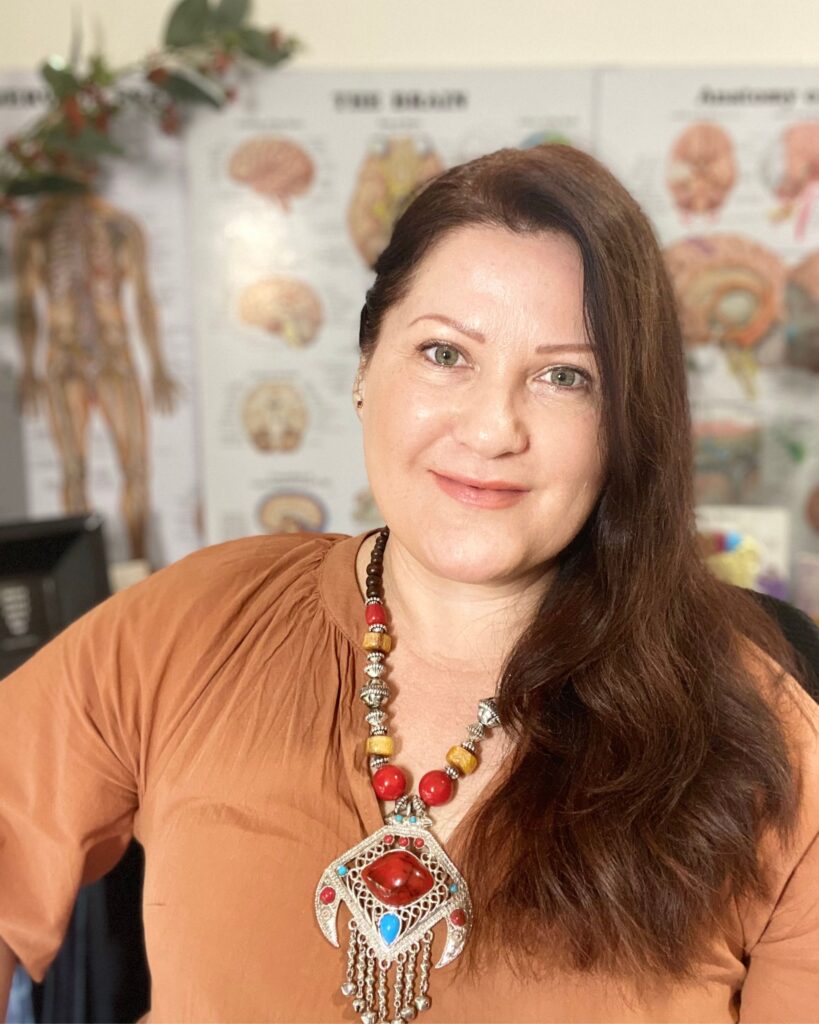Understanding the relationship between your dietary choices and their impact on your mood and energy levels is essential for maintaining overall wellbeing.
When you go extended periods without eating, it can lead to a significant drop in blood sugar levels, leaving you feeling tired and irritable. Conversely, overindulging to the point of discomfort can leave you feeling lethargic.
Many of my busy clients and students struggle to get going in the morning and don’t take the time to give themselves a nourishing head start. Unfortunately, this regular denial creates a cascade of cravings and energy dips for the rest of their day, ruining their healthy eating intentions.
Nutrients provided by the food we eat are required for the tens of thousands of necessary chemical reactions that occur every second of every day. That’s because food provides, or can fail to provide, the many chemical building blocks needed to produce neurotransmitters – hormone messengers linking the brain and body.
Nutrients are also required to make the many essential brain chemicals that influence our moods and behaviour. The quality of the food we eat supplies the biochemical basis for everything that happens – or should happen – within the body.
When the brain is lacking nutrients, it overrides our more careful and deliberate decision-making abilities by tricking us into reaching for convenient, packaged, and processed foods to ensure it gets quick nutrients to keep up with the demands we place on it.
The key to achieving stable mood and energy levels lies in adopting a balanced approach. Opting for moderate-sized meals at regular intervals helps maintain a steady blood sugar level, ultimately resulting in a more even-keeled mood and sustained energy throughout the day.
Our brain predominantly relies on glucose, obtained from carbohydrate-rich foods, as its primary source of energy. Drastically limiting carbohydrate intake can have the adverse effect of leaving you feeling irritable and fatigued, as the brain is deprived of the necessary glucose supply it thrives on.
Without regular and real nourishment making it into our cells, mood, energy, and overall wellbeing begins to decline. Before you know it, cravings and mood swings are a daily occurrence, fatigue and digestion are weighing you down, and foggy brain makes it hard to think clearly. Excess weight is merely a by-product.
To maintain a stable and positive mood while ensuring sustained energy levels, prioritise adequate carbohydrate consumption to support the brain’s energy needs.
Taking a good look at the food you eat on a daily basis, and how often, will very likely give you an idea of where you may be lacking a variety of nutrients to feed your brain with energy. From there you can start making some healthy swaps for more nutrient dense sources and responding to true hunger signals with mindful attention.
Here are some general healthy guidelines, subject to any allergen foods:
- Focus on whole, natural and seasonal fruits, vegetables, nuts and seeds (organic is preferred where possible).
- Add in good quality protein from both animal and plant sources (grass-fed and free-range preferred).
- Include quality complex wholegrain carbohydrates according to your own personal energy requirements (think oats, buckwheat and rice).
- Substitute refined sugars for natural nutritious sweeteners like coconut sugar, rapadura sugar (also known as jaggery), raw honey and a variety of fibre-filled fruit.
- Choose natural sources of healthful fats (including coconut oil, grass-fed butter, avocados and cold pressed virgin oils like olive and macadamia).
- Reduce (or eliminate) processed, packaged and refined foods in favour of all of the above, most of the time (80/20).
- Make time at every meal to sit, breathe, relax and enjoy every mouthful until you are comfortably satisfied.
When your body is nourished so is your brain. Cravings will then gradually stabilize, along with your moods and hormones, and naturally fade away.
You’ll create more energy, better concentration, and enjoy a happier relationship between your mind, body and food.
Photo by Ola Mishchenko on Unsplash

Author:
Viki Thondley
Viki Thondley-Moore is an Integrative Holistic Counsellor, Brain-Based Coach, Clinical Hypnotherapist, Mind-Body Somatic Practitioner, Wellness Coach, Meditation Teacher, Educator and Disordered Eating Specialist. Viki is founder of MindBodyFood and Founder/Director of the MindBodyFood Institute.







